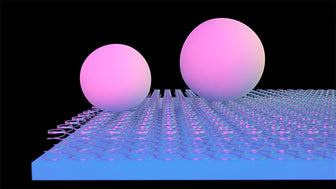Ever had that dream where you’re naked in public? The one where all your teeth fall out? Or the one with your favourite celeb, where you wake up at the best bit? Funny, thrilling, terrifying and confusing - dreams can be many things.
The brain is the most complex organ in a complex system. Understanding this process and what causes dreams is challenging, and while researchers will undoubtedly make fresh discoveries, there are some widely held beliefs as to why we dream.
WHY DO WE DREAM?
Here are some of the main theories behind why we dream:
- Dreaming helps the brain to consolidate and analyze memories
- It serves as rehearsal for various situations or challenges
- To process subconscious thoughts or emotions
- To process information or de-clutter the brain
- To spur creativity
- To keep the brain active
While we can all appreciate a good dream, we can have nightmares too. Bad dreams are often linked to:
- Worrying and stress
- Recent or past trauma
- Emotional problems
- Illness and fever
- Medication and drug use
- Certain types of food like cheese
WHAT ARE THE SIGNS OF INSOMNIA?
For most people, insomnia is characterised by the following symptoms:
- Difficulty falling asleep and staying asleep
- Spending long periods of the night awake
- Waking up frequently
- Early waking
- Waking up feeling unrefreshed
- Feel tired all day but unable to sleep at night
- Dependence on alcohol, sleeping bills or cannabis to fall asleep
WHAT CAUSES DREAMS??
Most dreaming occurs during the REM (rapid eye movement phase of sleep) when the brain is as active as when we’re awake. Most experts agree that this is where the brain processes the day’s events and stores them as long-term memories. Dreaming takes place in the visual cortex part of the brain, and the brainstem is responsible for REM sleep. It’s possible that dreams stem from our imagination and our memory bank, thoughts, and desires. Sometimes, our dreams respond to external stimuli, like talking or noises around us, or our current physical status, like when we feel too hot, cold, or thirsty, or we need to use the bathroom.
WHAT ARE THE STAGES OF SLEEP AND WHAT STAGE DO WE DREAM?
There are four main stages to the sleep cycle and you may go through multiple, progressive cycles every night:
Light non-REM sleep
- This light, drifting off stage marks the beginning of sleep and the brain will produce alpha and theta brain waves.
Deep non-REM sleep
- The deepest stage of sleep where you’re the least likely to be disturbed by external stimuli. The hardest stage to wake up from, where the body is busy repairing and recovering.
REM sleep - the dream phase
- Most dreaming occurs in the REM phase. REM sleep occurs every 90 minutes in the sleep cycle. The brain is very active, and the eyes move quickly under closed lids. Your brain waves behave as if you are awake, with increases in heart rate, blood pressure and faster breathing. REM sleep is hugely important to our brain health and wellbeing.







